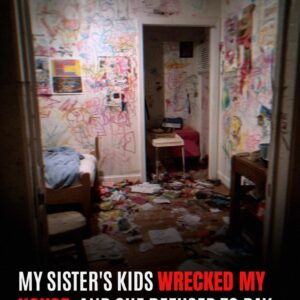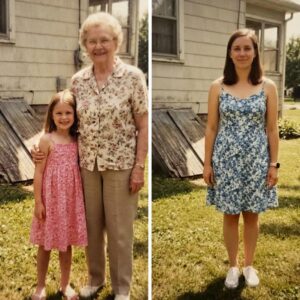
The words struck me harder than any storm ever could. My daughter—the little girl I once rocked to sleep—stood before me, her voice cold and final.
“There’s no room for you here anymore.”
I waited for a smile, a laugh, anything to undo what I’d heard. But she meant it. So I packed what little I had and left without a word—not for lack of things to say, but because speaking would shatter me completely.
I never imagined being 64 and homeless, cast out by the very person I’d lived for. My wife died when Lila was seven, and from that moment on, I gave her everything—two jobs, sleepless nights, endless love. I thought it was enough.
When she graduated and moved to the city, she insisted I live with her. “Let me take care of you now,” she said. For a while, it was good—until Alex appeared. He wanted her world to himself. Slowly, I became the ghost in my own daughter’s home.
So I left quietly and started over—selling pancakes from a street cart. It wasn’t much, but it was mine.
Months later, she found me there. Dressed in her office suit, eyes red, voice trembling.
“I’ve heard people talking about you,” she said softly. I handed her a pancake without a word. She took a bite, tears slipping down her cheeks.
“You still make them the same way,” she whispered. “I was wrong, Father. There was always room for you.”
I looked at her—the woman she’d become and the child she’d once been. Forgiveness didn’t erase the pain, but it built something stronger over it.
I nodded toward the empty bench beside me. “There’s space here if you’d like to sit.”
She did. And together, under the morning sun, we shared a pancake—one bite at a time—just like we used to.
And in that quiet, between bites and tears, I realized something simple and true:
Home isn’t a place. It’s the moment someone chooses to come back.





